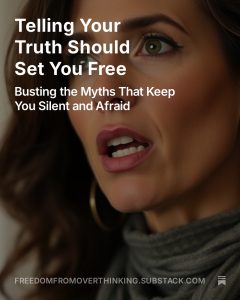When confronted with difficult feelings, or any feelings really, my tendency is to want to figure out how the feelings will serve as my teachers, make me more aware and help me grow as a human being. That, I guess you could say, is my way of keeping feelings at a safe distance and under the control of my mind. Some people create distance from their feelings by focusing on how they are going to change them, make them improve. Or if already good, how they are going to hold onto them and keep them from going away. Others relate to their feelings through the lens of what their feelings mean about who they are—how their feelings reflect or don’t reflect their identity. Still others manage feelings by turning them into a story and continually narrating or describing their feelings to themselves and everyone else. Then there are those who keep feelings from being felt, at arm’s length, by focusing on why their feelings have appeared, the particular cause and interpretation. So too, there are those who avoid their feelings altogether by projecting them onto others through grand schemes of blame and the like. The point is, whether understanding, learning from, examining, manipulating, managing, fixing, projecting, interpreting or narrating, we are all quite clever when it comes to finding ways to not feel our feelings directly.
We are taught that we should not get too close to our feelings, and certainly not get inside them, feel them in the flesh or inhabit them. We don’t want to experience suffering so we keep our feelings in the realm of the mind, a safe distance away, through countless rational and seemingly self-protective strategies. We believe that if we were to feel our feelings directly, close the gap between the person who is experiencing the feelings and the feelings themselves, we might never come out the other side, never survive.
But here in lies one of the greatest mysteries of life. When we stop doing something to and with our feelings and just feel them directly, in our body as sensations and our hearts as raw emotion (without any story to go with them), those feelings have a way of transforming on their own. There is a natural process, a flow of grace that kicks in when we give ourselves permission to actually feel what we feel, the truth in its nakedness, without any narrative on what it all means or what to do with or about it.
I was not confident when I first started practicing this simple (but not easy) teaching. I did not believe that anything good could come from refraining from using my mind to learn from, understand, empathize with, interpret, narrate or manage my feelings in some way. It seemed a waste of time, and worse, that feeling what I feel directly, in the body and heart, from inside the feelings themselves, would (I believed) extend the presence of the feelings I already did not want. I knew what I felt so why did I need to feel it anymore or any more directly than I already did? How would that help?
When I began the practice of feeling my feelings directly, without the accompanying story or strategy, my mind kept telling me that without its help, nothing good could happen and nothing good would happen. But in reality what I experienced when I set the mind’s narrative aside and invited the rawness of my feelings to be felt in the body, was far better than anything I could have thought up, and effectively blew my mind out of a job! Astoundingly, when my feelings were given permission to experience themselves, from the inside out, they did change—on their own. As it turned out, the feelings themselves had a wisdom and an energy. Amazingly, I didn’t have to be the one in charge of changing them, didn’t have to do anything with or to them. All I had to do was get out of the way and provide them with the invitation to breathe and be felt. With that, my feelings relaxed and transformed on their own.
Once experienced directly, felt in the body and heart, with no middle mind, my suffering loosened and ironically, the feelings could actually become my teachers (as I had previously hypothesized so eloquently). This was a revelation, not that the feelings could transform or teach me, but that they could do so on their own—without my having to make it happen.
Through this practice I discovered that I can surrender to life, don’t need to be vigilantly in charge of creating change internally or managing my experience to fit a desired outcome. When I took the risk that it is to let my heart simply feel what it feels, I got to experience a larger, more magical and mysterious process at work. I got to experience grace, which moves things forward on her own, myself included. Had I never taken the leap, I would never have trusted the river of life that is flowing us onward, no matter how much our mind tries to convince us that we are flowing it. What I learned through this practice of directly experiencing what is is that it is safe to sync up with my experience, to get inside it if you will, so that there remains only one entity, experience and self as one, rather than a me and a separate experience that I am having (and must control). So too, I discovered that my feelings know how and what they need to feel better, and they know this better than I ever could. I can then relax and trust life, trust grace, trust the process of change itself, all of which is happening on its own.


